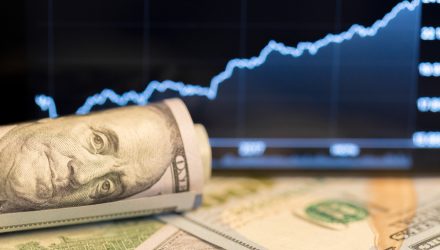As they say in gambling, it’s typically best to follow the smart money and in this case, it’s global investment firm Goldman Sachs and their bearishness when it comes to the U.S. dollar. According to a recent CNBC article, the firm is sensing weakness in the greenback with a forthcoming U.S. election and risky Covid-19 vaccine trials.
The article noted that in “a note to investors Friday, Goldman analysts said they saw ‘low odds’ for the most dollar-positive outcome by the end of the year. They named this as an electoral victory for President Donald Trump, combined with a meaningful delay to vaccine progress.”
“If the vaccines are highly effective, these early results may be sufficient to imply a high probability of emergency FDA approval by year-end,” said Goldman’s Zach Pandl, co-head global FX, rates and EM strategy.
“To be sure, there are important risks: we are most uncertain about the length of the vote count (especially for the Senate) and the equity market reaction to a ‘blue wave’. But the wide margin in current polls reduces the risk of a delayed election result, and the prospect for near-term vaccine breakthroughs may provide a backstop for risky assets,” Pandl wrote.
Investors who want to take a contrarian view on a weakening U.S. dollar can look at greenback strength via the Invesco DB US Dollar Bullish (NYSEArca: UUP). UUP tracks the price movement of the U.S. dollar against a basket of currencies, including the euro, Japanese yen, British pound, Canadian dollar, Swedish krona, and Swiss franc.
On the other hand, the actively managed USDU tracks the USD against a broader basket of developed and emerging market currencies, including China, India, South Korea, Switzerland, Australia, Mexico, the United Kingdom, Canada, Japan, and Europe.
USDU provides investors with:
- a broad, dynamic, and effective way of gaining exposure to the U.S. dollar against a basket of foreign currencies in an ETF structure.
- an alternatives bucket as a broad-based diversifier as it exhibits strong negative correlations to international equity and bond portfolios.
Hedging with Europe-focused ETFs
Here are a pair of Europe-focused ETFs to watch that feature a hedging approach to mitigate volatility between the euro and U.S. dollar:
- Xtrackers MSCI Europe Hedged Equity ETF (DBEU): seeks investment results that correspond generally to the performance, before fees and expenses, of the MSCI Europe US Dollar Hedged Index. The fund, using a “passive” or indexing investment approach, seeks investment results that correspond generally to the performance, of the underlying index, which is designed to track the performance of the developed markets in Europe, while mitigating exposure to fluctuations between the value of the U.S. dollar and the currencies of the countries included in the underlying index. It will invest at least 80% of its total assets in component securities of the underlying index.
- Xtrackers MSCI Eurozone Hedged Equity ETF (DBEZ): seeks investment results that correspond generally to the performance, before fees and expenses, of the MSCI EMU IMI US Dollar Hedged Index. The fund, using a “passive” or indexing investment approach, seeks investment results that correspond generally to the performance, of the underlying index, which is designed to track the performance of equity securities based in the countries in the European Monetary Union, while seeking to mitigate exposure to fluctuations between the value of the U.S. dollar and the euro. It will invest at least 80% of its total assets in component securities of the underlying index.
For more market trends, visit ETF Trends.
